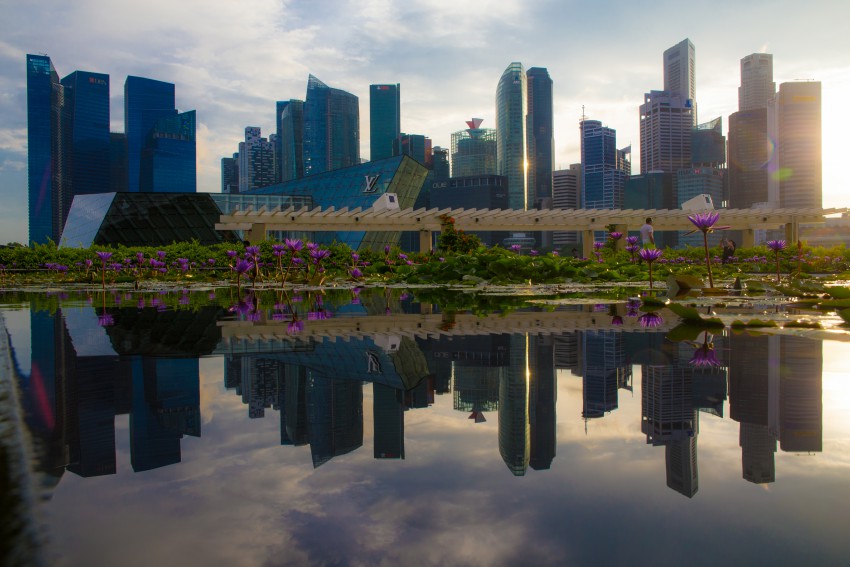Owing to policies that encourage entrepreneurialism amongst its highly-educated workforce, as well as investment from venture capitalists, Singapore has cultivated an ecosystem ripe for producing successful startups.

If Southeast Asia is today a hotbed of entrepreneurial talent – the region’s start-up scene has rocketed on the back of recent rapid technological innovation and large amounts of investment from ambitious venture capitalists – then the city-state of Singapore stands at the very epicentre of this boom.
In the last eight years, Singapore has climbed into the top ten of leading global start-up ecosystems in the world, according to Genome’s Global Start-up Ecosystem Rankings. What has worked so well in its favour is the nation’s strategic advantage in terms of robust infrastructure availability, ease of doing business and technology adoption, as well as clear government policies that look to encourage entrepreneurialism amongst its highly-educated workforce.
It’s thanks to these magical ingredients that Singapore has become a hub of the so-called ‘unicorn’ – a term appropriated to describe a privately held start-up company valued at over $1 billion. The most famous global unicorns include the likes of Airbnb, Uber and Reddit. While these now household-name brands were founded in San Francisco, there is an expanding list of companies based in Singapore – dubbed Asia’s Silicon Valley – that are also joining the billion-dollar start-up club.
According to the State of Southeast Asian Tech report, Singapore attracted $7.8 billion of venture funds between 2013 and 2017, helping the city-state more than double its number of start-ups to over 50,000. In this time, Singapore has raised the largest amount of funds in the region, and now accounts for half of its unicorns – a total of four.
Perhaps the most well-known of these is Grab, a ride-hailing service that was Uber’s biggest competitor in the region until Grab and Uber announced in March 2018 that the former had acquired the latter’s operations for Southeast Asia. Founded in Malaysia in 2012, the tech company moved its headquarters to Singapore two years later and is now present in eight countries across the region holding a 95 percent market share for third-party taxi-hailing.
For Grab, the entrepreneurial ecosystem that has been carefully cultivated in Singapore – where innovation and digitalization are right at the top of political and business agenda – is the one of the main reasons why the businesses decided to move there.
“As a tech company, that’s everything,” says Grab’s Head of Singapore Operations, Lim Kell Jay. “The government provides the framework, tech companies provide the innovation. We believe that we are the fuel that will help power the government through this transformation.”
It is this very ecosystem that has helped Grab go from strength to strength and gain its unicorn status. By 2018, the company had raised $4 billion of funding from investors and recorded over 50 million downloads of its app. Having become the “leading home-grown tech company”, says Lim, the firm has had to replace some of characteristic “scrappiness” of a start-up with the “processes and policies” you come to expect from a global tech firm. However, in doing so, Grab has been able to give back to the Singaporean entrepreneurial ecosystem that helped it become what it is. Grab’s new business arm, Grab Ventures, acts as its very own entrepreneurial incubator, working with fledgling businesses and growth-stage startups scale across Southeast Asia.
“That’s how we try to balance between being a big company and retaining some of that start-up spirit,” explains Lim. By complimenting the already fruitful conditions for entrepreneurialism in Singapore, it may well just serve as an extra vehicle to nurture the nation’s next unicorn.
A prime contender for this honour is Carousell. Founded in Singapore in 2012, the consumer-to-consumer marketplace app has already expanded to 19 cities and raised $126.8 in funding from seven VCs in the process.
Co-founder and CEO, Quek Siu Rui, who has overseen Carrousel’s rise, says: “It’s been six years since I made my parents very angry when I decided to do a start-up, so it’s great to again get the validation of our investors.”
0 COMMENTS